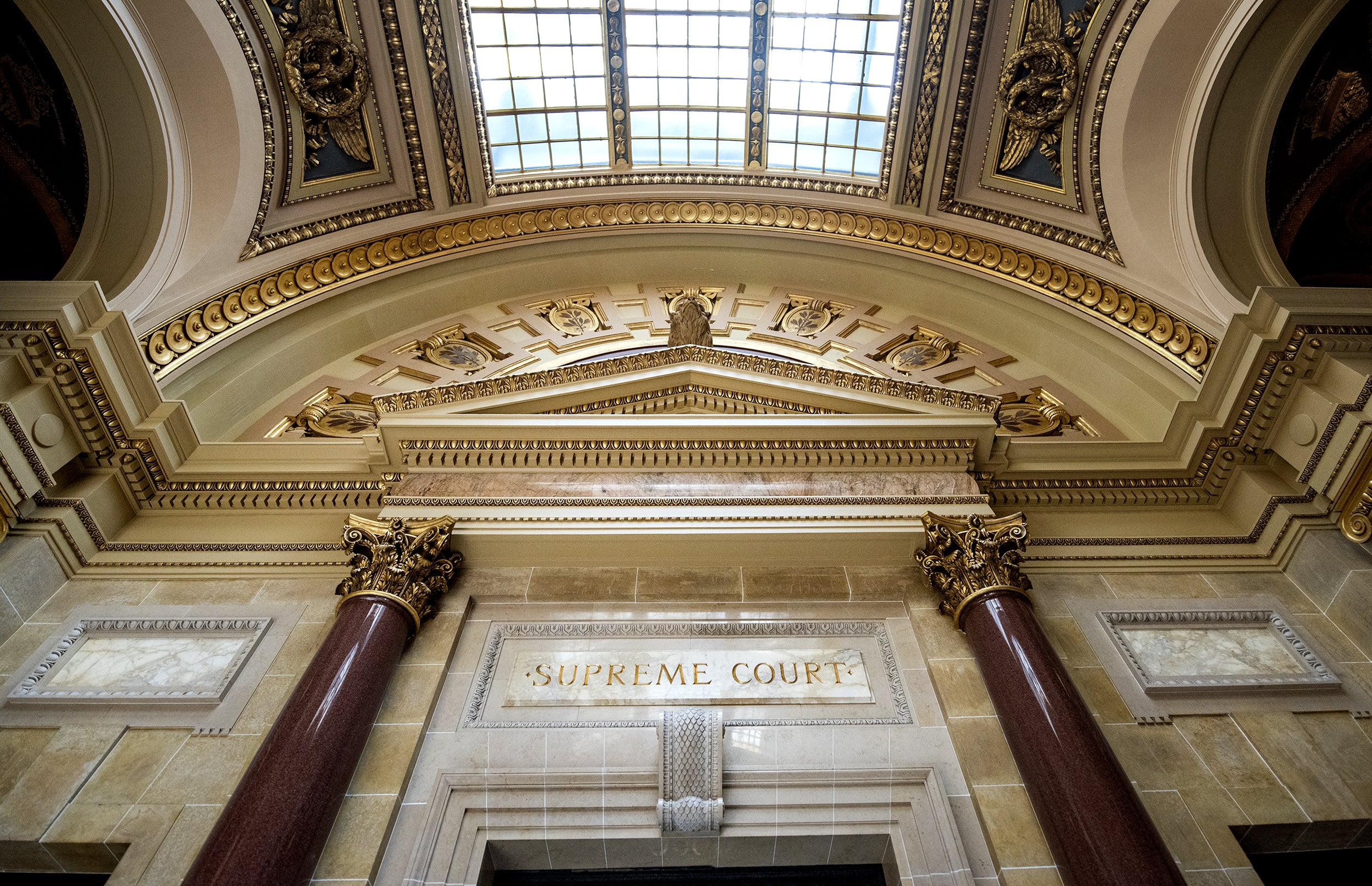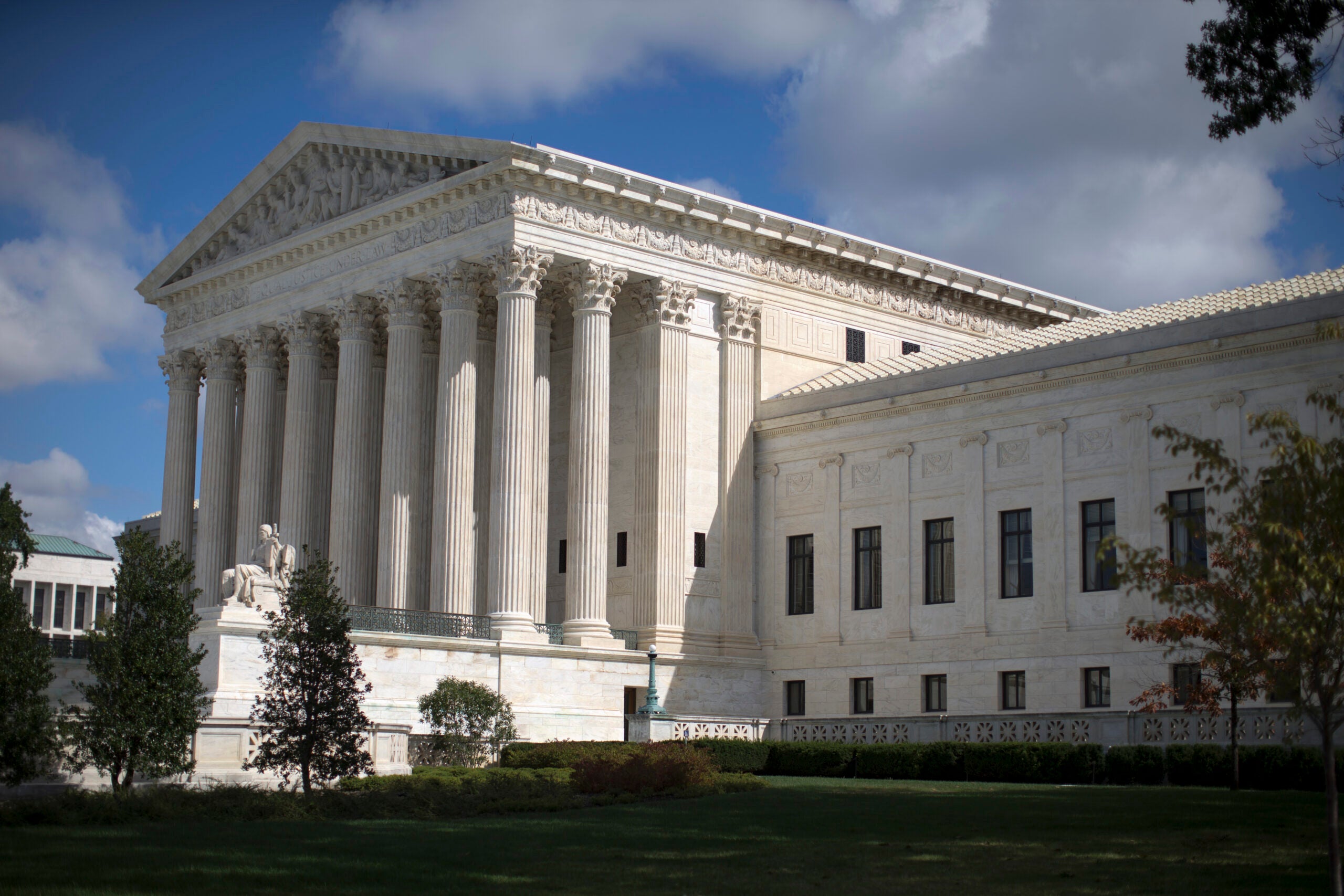The Wisconsin Supreme Court heard arguments Tuesday in a lawsuit challenging the Madison Metropolitan School District’s policy for supporting transgender students.
While the case deals with big issues, it could hinge on procedural questions, namely whether the conservative group behind the challenge can bring the case with anonymous plaintiffs.
The Wisconsin Institute for Law and Liberty brought the lawsuit in February 2020 challenging MMSD’s “Guidance & Policies to Support Transgender, Non-binary & Gender-Expansive Students.”
News with a little more humanity
WPR’s “Wisconsin Today” newsletter keeps you connected to the state you love without feeling overwhelmed. No paywall. No agenda. No corporate filter.
The policy, which has been in place since 2018, states that students “will be called by their affirmed name and pronouns regardless of parent/guardian permission to change their name and gender.” The policy also states that school staff “shall not disclose any information that may reveal a student’s gender identity to others, including parents or guardians.”
WILL attorney Luke Berg told justices that this violates the constitutional rights of parents to raise their children the way they think is best, urging the court to block the entire policy.
“Let the parents decide,” Berg told justices. “For some kids, it may be right. For others, it may not. But parents know their kids best.”
But attorney Adam Prinsen, who represents the Gender Equity Association of James Madison Memorial High School, argued the district’s policy didn’t prevent parents from doing anything with their children.
“We’re talking about the school respecting a decision of a child to go by a different name or set of pronouns at school and respecting that confidentiality,” Prinsen said. “The school is not intervening in the home.”
WILL filed its lawsuit on behalf of a group of anonymous plaintiffs that it says are parents of students in the district, a procedural step that the district argues breaks from nearly 170 years of precedent in the state Supreme Court.
“Ours is an adversarial system,” MMSD attorney Sarah Zylstra said. “There are a number of legal defenses that I cannot raise unless I know their actual identities.”
In September 2020, Dane County Circuit Court Judge Frank Remington issued a decision that partially blocked enforcement of the MMSD policy but left the rest in place. Remington struck down part of the policy that banned district staff from telling parents about their gender identity, even if parents ask.
But Remington’s order left the rest of the policy in place because WILL’s plaintiffs brought their lawsuit anonymously.
“By remaining anonymous and by asking this court to make evidentiary findings regarding irreparable harm or an adequate remedy unfairly deprives the Defendants a meaningful opportunity to challenge Plaintiffs’ factual assertions,” Remington wrote.
WILL asked the state Supreme Court to go a step further, blocking the policy in its entirety, arguing that parents still won’t know about their kids’ gender identities at Madison schools if they don’t ask.
While it can be dangerous to read too much into justices’ comments during oral arguments, two justices appeared to send clear signals about where they were leaning.
Justice Rebecca Dallet, one of the court’s liberals, appeared persuaded by the idea that plaintiffs should have to be named in order to bring a lawsuit like this.
“Your clients are claiming that they’re going to be irreparably harmed,” Dallet told Berg. “How is the other side supposed to litigate irreparable harm if they don’t even know who they are?”
Justice Rebecca Bradley, the court’s most outspoken conservative, sounded sympathetic to WILL’s decision to shield the names of its plaintiffs.
“I will point out that due in no small part to a leak at, of all places, the United States Supreme Court, an amici in this case had Molotov cocktails thrown through its window,” Bradley said, referring to the anti-abortion group Wisconsin Family Action.
Zylstra argued that WILL could keep its plaintiffs hidden from the public as long their information was shared with opposing counsel, a step Berg indicated the group was unwilling to take.
Arguments Tuesday at times turned heated, especially when Berg referred to Madison’s policy as an “experiment” on children.
“What we are talking about here is an experiment, a grand social experiment,” Berg said. “Never before in the history of humanity have we, on such a large scale, treated little boys as if they’re girls and little girls as if they’re boys.”
That prompted Dallet to interrupt Berg.
“Mr. Berg, I would like you to focus on this case and not pontificate about something much larger,” Dallet said.
Conservatives hold a 4-3 majority on the court. The case could hinge on conservative swing Justice Brian Hagedorn, who spoke only briefly during Tuesday’s arguments.
Wisconsin Public Radio, © Copyright 2025, Board of Regents of the University of Wisconsin System and Wisconsin Educational Communications Board.







